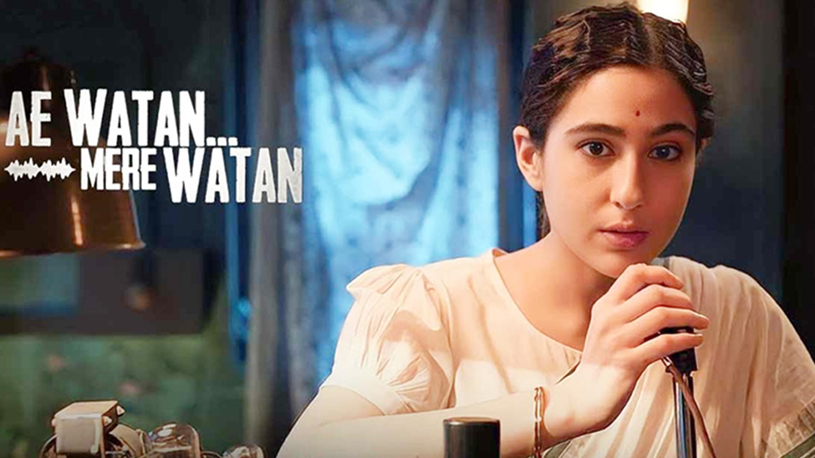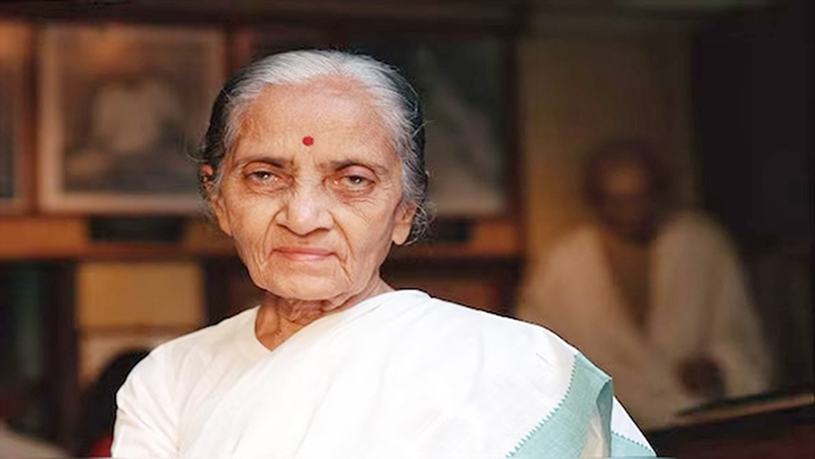Learn about Usha Mehta, the freedom fighter played by Sara Ali Khan in the movie “Ae Watan Mere Watan”

The film “Ae Watan Mere Watan,” featuring Sara Ali Khan in the lead role, made its debut on Amazon Prime Video on March 21st. Sara takes on the role of the valiant freedom fighter, Usha Mehta, in the cinematic piece. Kannan Iyer helmed the project as both director and co-writer, with Karan Johar, Apoorva Mehta, and Somen Mishra serving as producers. The narrative explores the life of Usha Mehta and the operations of Congress Radio, a covert radio channel she ran during the Quit India Movement in 1942.
Despite the fact that the movie has received a variety of evaluations, it is imperative that every Indian watch it. This is due to the fact that relatively few Indians are aware of Usha Mehta, who was a freedom warrior. Furthermore, it demonstrates the crimes that were committed by the evil empire and its puppets.
Diving into the life of Usha Mehta, her tale is a testament to the indomitable spirit of a young woman who boldly stood against British dominance with bravery and resourcefulness. Mehta’s enduring legacy in the annals of India’s fight for independence is highlighted by her crucial involvement in setting up Congress Radio, an undercover initiative that confronted the British monopoly on information at a critical juncture.
Born in Surat, Gujarat, in 1920, Usha Mehta was introduced to the struggle against colonialism early on, thanks to her father’s role as a judge under British governance. Her early engagement in activism was sparked when she joined protests against the Simon Commission as an eight-year-old, echoing the slogan “Simon Go Back” with peers, marking the beginning of her lifelong dedication to India’s liberation.
Mehta’s journey through the freedom movement saw her graduate from Wilson College in Bombay (present-day Mumbai), though her academic pursuits were often paused by the escalating push for independence. Inspired by Mahatma Gandhi’s principles of non-violence, she took an active part in the civil disobedience efforts of the 1930s, from circulating prohibited texts to leading protests against the British authorities.
 The formation of Congress Radio came at a pivotal moment during the Quit India Movement in 1942, initiated by Gandhi. As the British government intensified its crackdown, arresting leaders and censoring communication, 22-year-old law student Mehta stepped up with a groundbreaking solution: a secret radio station. Together with fellow revolutionaries Ramnath Shukla and Chandrakant Shah, she established Congress Radio, broadcasting from hidden locations to evade British detection.
The formation of Congress Radio came at a pivotal moment during the Quit India Movement in 1942, initiated by Gandhi. As the British government intensified its crackdown, arresting leaders and censoring communication, 22-year-old law student Mehta stepped up with a groundbreaking solution: a secret radio station. Together with fellow revolutionaries Ramnath Shukla and Chandrakant Shah, she established Congress Radio, broadcasting from hidden locations to evade British detection.
In an interview, Mehta highlighted the importance of such a transmitter in times of censorship, stating it played a critical role in disseminating true accounts of events and spreading the call for rebellion. The broadcasts, in multiple languages including Hindi, Urdu, and Marathi, aimed at a broad audience, directly challenged British informational control, sharing everything from Gandhi’s messages to updates on the freedom struggle, thereby providing an unfiltered view of the resistance.
The influence of Congress Radio was profound, offering an essential voice for the independence movement and nurturing a collective resolve among the Indian populace. Nevertheless, the British were keen on muting this rebellious outlet. Despite the risks, Congress Radio managed to operate for a few months until the British pinpointed a transmitter using triangulation methods, leading to Mehta’s arrest in November 1942.
After her release in 1946, Mehta continued her dedication to public service, earning the Padma Vibhushan in 1998 for her significant contributions to India’s freedom cause. She passed away on August 11, 2000, at the age of 80, leaving behind a legacy of courage and commitment to national independence.































